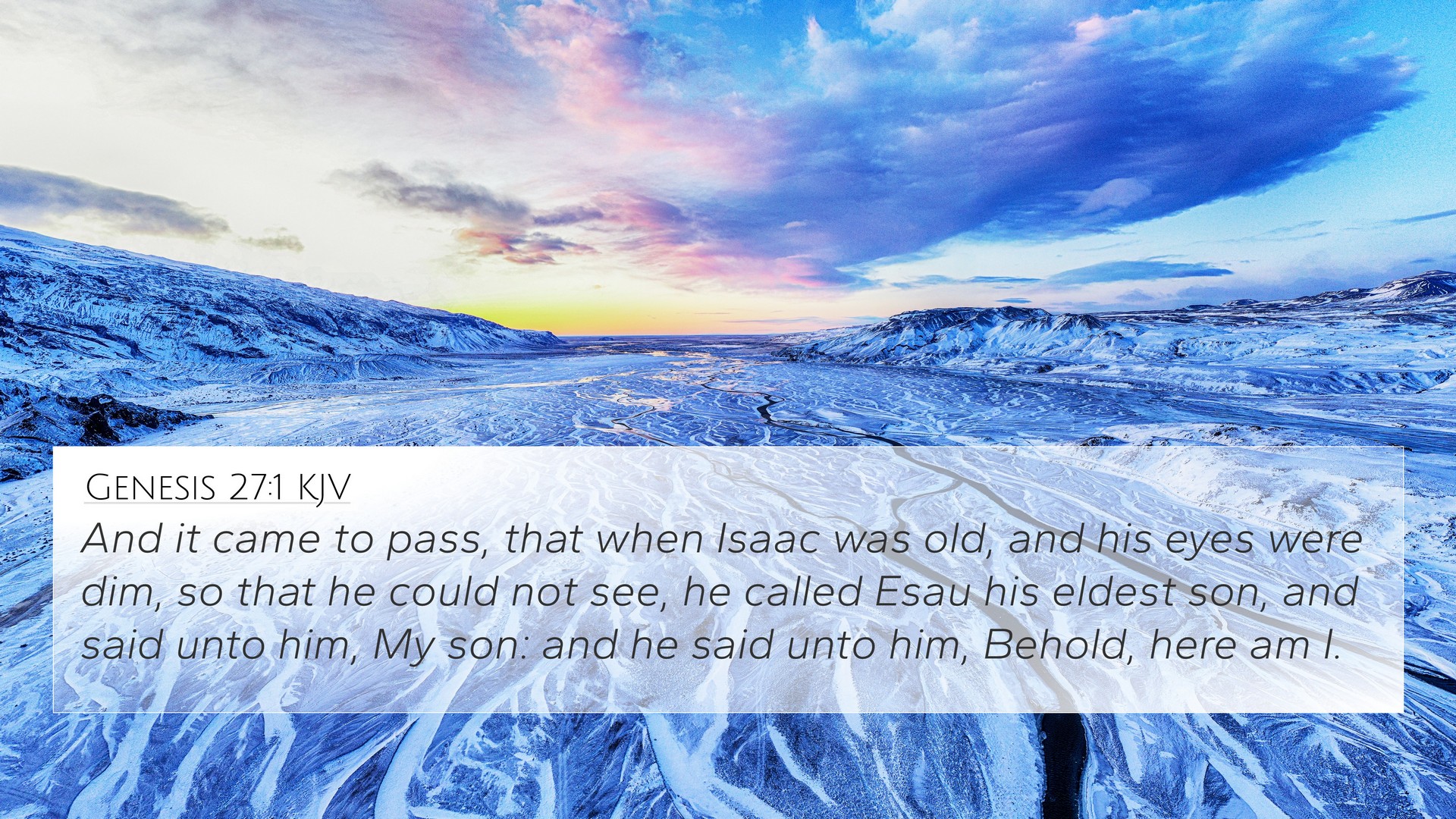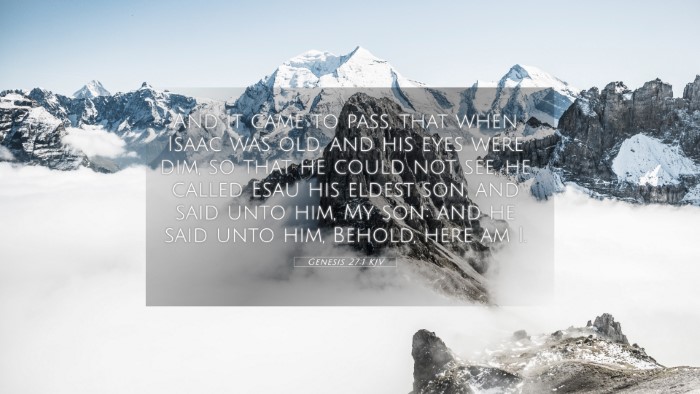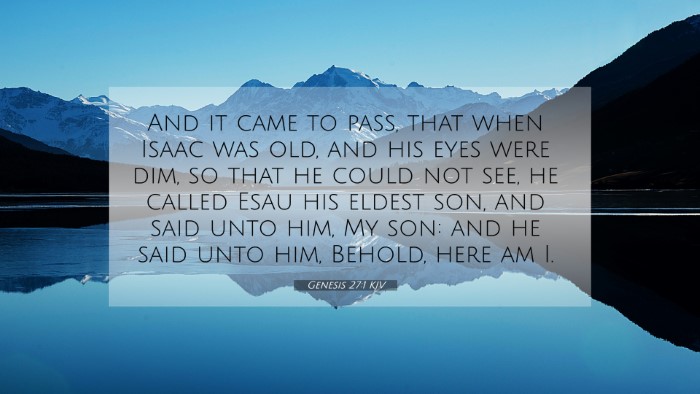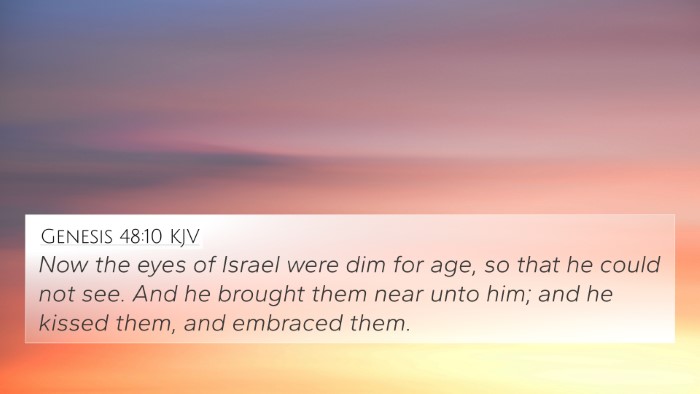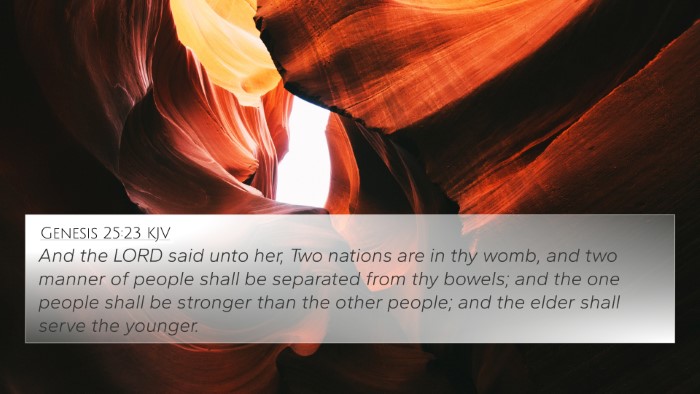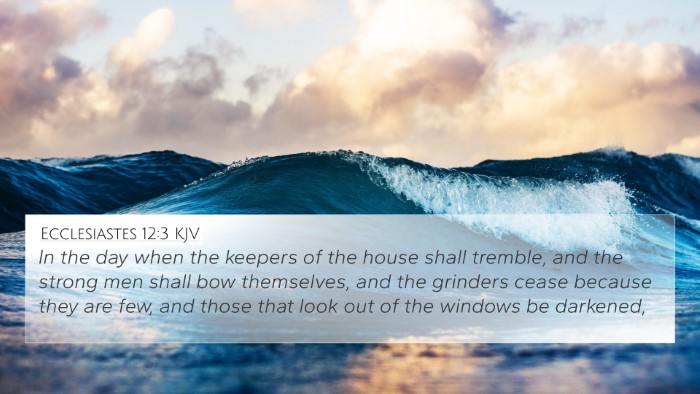Understanding Genesis 27:1
Genesis 27:1 reads: "And it came to pass, that when Isaac was old, and his eyes were dim, so that he could not see, he called Esau his eldest son, and said unto him, My son: and he said unto him, Behold, here am I." This verse introduces a pivotal moment in the narrative of Isaac, Esau, and Jacob, revealing themes of family dynamics, sightlessness both physically and spiritually, and the unfolding of God’s purposes within the family of Abraham.
Commentary Insights
Various commentators provide deeper insights into this verse:
-
Matthew Henry:
Henry emphasizes the physical frailty of Isaac, noting that his blindness not only symbolizes his weakened state but also hints at the metaphorical blindness prevalent in familial relationships. This blindness allows for the unfolding of God's plan, despite human imperfections.
-
Albert Barnes:
Barnes highlights the significance of Isaac’s call to Esau. He interprets it as Isaac's internal desire to bestow the blessing upon his first-born quality, showing how human desires can cloud divine intentions. This moment marks the start of a chain of events that reveals deeper truths about God's sovereignty.
-
Adam Clarke:
Clarke focuses on the implications of Isaac's old age. He suggests that Isaac’s physical condition is a metaphor for his loss of spiritual vision, hinting at a broader theme of discernment within the family lineage. Clarke also discusses the cultural norms impacting the blessing process, illustrating the tension between tradition and divine will.
Thematic Analysis
This verse invites a thematic exploration of several critical concepts:
- Family Dynamics: The interactions between Isaac, Esau, and Jacob highlight the complexities within family relations.
- Divine Sovereignty: Despite human actions, God's agenda continues to unfold, as shown throughout Genesis.
- Spiritual Blindness: Isaac’s dimmed sight serves as a metaphor for failing to perceive God’s will and purposes.
Key Cross-References
The following Bible verses provide relevant cross-references that connect to Genesis 27:1, illustrating the relationships within biblical themes:
- Genesis 25:23: God's prophecy concerning the struggle between the two sons.
- Genesis 27:18-29: Jacob's deception to receive the blessing meant for Esau, indicating the lengths to which one might go to fulfill perceived familial obligations.
- Romans 9:10-13: Paul reflects on the twins and God’s sovereign choice, acknowledging that God’s purposes transcend human actions.
- Hebrews 11:20: The mention of Isaac blessing Jacob and Esau introduces the theme of faith in the blessings pronounced.
- John 9:39: Jesus speaks of spiritual blindness, drawing parallels to Isaac’s physical blindness.
- 1 Samuel 16:7: The Lord speaks about looking at the heart, illustrating the theme of divine perspective versus human judgment.
- Proverbs 3:5-6: Trusting in God’s wisdom illustrates the importance of seeking divine insight in all matters, contrasting with Isaac's poor decisions.
Connections with Other Bible Verses
This analysis encourages readers to explore connections between Genesis 27:1 and the following themes:
-
Bible verse parallels: The struggle for blessings between siblings is seen again in various stories, such as Jacob and Esau's descendants later in Israel's history.
-
Inter-Biblical dialogue: The New Testament references to the legacy of Isaac’s sons encourage a reflection on how these early stories inform Christian identity.
-
Comparative Bible verse analysis: The importance of blessings in the Old Testament foreshadows the significance of spiritual blessings in the New Testament through Christ.
Conclusion
Genesis 27:1 is not merely a narrative detail but pivotal in understanding the complexity of divine interaction in human affairs. It invites readers to delve into the themes of judgment, blindness, and the dynamics of blessing within families, consistent with the overarching story of God's chosen people. Through tools for Bible cross-referencing, one can glean deeper insights from effective study practices.
